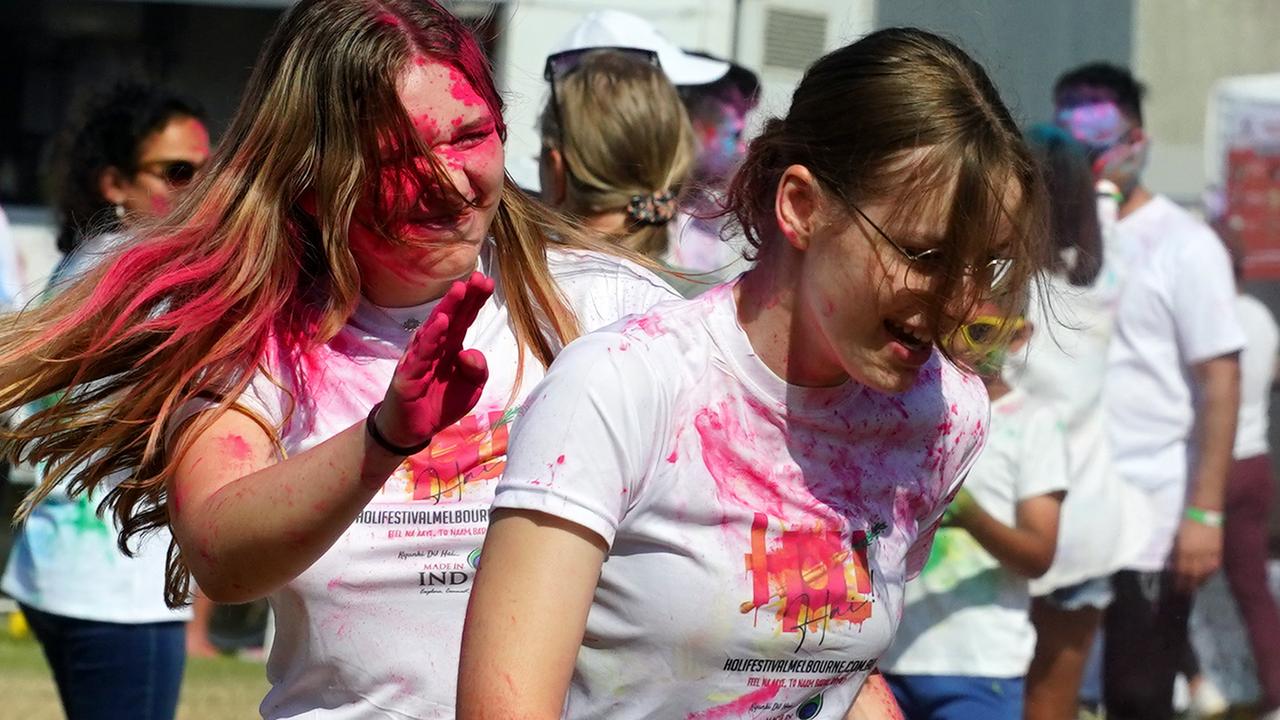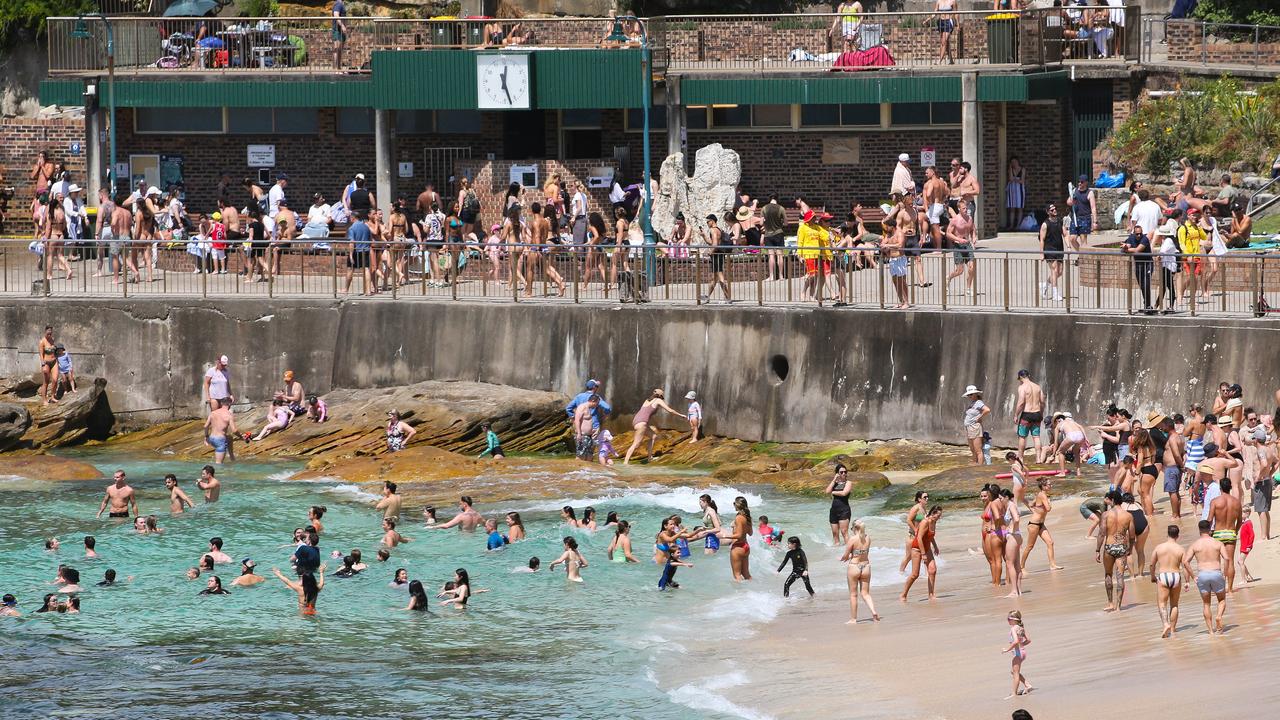‘Really clear’: Australian government urges tourists to behave in Bali
The Australian government is urging travellers to listen to Indonesian authorities cracking down on tourists.
The Australian government is urging travellers to listen to Indonesia’s pleas to behave in Bali.
The wildly popular holiday island, where Australians are the top foreign visitors, has seriously cracked down on tourists not following its local customs and laws this year.
An official tourist dos and don’ts list was released, a hotline was established for anyone to dob in misbehaving travellers, a special task force was set up to monitor foreigners’ activities, and next year a tourist tax will be introduced.
Assistant Foreign Affairs Minister Tim Watts said one thing that was “really clear” from authorities in Bali was their request for Australians to respect religious sites.
“If you’re going to a religious site in Bali, a temple or something like that, respect the dress standards,” he said, speaking to news.com.au on Thursday.
“Don’t go for that Instagram shot in a bikini at that kind of location because culturally that’s not going to be appreciated by locals.”

Mr Watts’ second warning to Australians heading to Bali was to read the fine print of their travel insurance.
“Another thing we see in Bali is the importance of getting travel insurance that matches the activities you’ll be doing overseas,” he said.
“If you look at the fine print of a lot of travel insurance products, there will be exclusions perhaps for something like riding on a motorbike or sometimes there can be exclusions around the consumption of alcohol.”
Australians have rallied around fellow Aussie families this year who sadly found that out the hard way.
More than $500,000 was raised to help bring police officer Ella Cutler home to Perth in September after she fell 10 metres down a cliff while holidaying in Croatia.
While she did have travel insurance, Dubrovnik police ruled that she had been drinking when she fell, which meant she wasn’t covered.
More than $220,000 was raised to bring NSW mum Kylee Enwright home from Thailand in June after she fell at her hotel. She was also not covered by travel insurance because she had been drinking. She battled for weeks but died in August.


As for Aussies skimping on travel insurance amid the increased cost of living, Mr Watts said: “It’s really clear from our perspective if you can’t afford travel insurance, you can’t afford to travel.
“Australian consular officials will do their best to help Australians if you get into trouble overseas but there is limits to the support we can provide.
“We can’t pay your medical bills for example, we can’t pay to repatriate you to Australia if you encounter an incident that makes it difficult for you to travel.”
The latest data, released on Thursday, for consular assistance and crisis support the Department of Foreign Affairs and Trade (DFAT) provides to Australians overseas showed Indonesia was the top country for illness and hospitalisation.
DFAT assisted 132 cases there in the 2022-23 financial year.
DFAT also assisted with 148 cases where Australians died in Indonesia (third highest country), 14 cases of immigration detention (third highest country), 11 cases involving drug-related arrests (top country), 17 cases where Australians were imprisoned (fifth highest country), and 18 cases of assault (second highest country).

However, Thailand was the country where Australians needed the most consular assistance, followed by the Philippines and then Indonesia.
DFAT supported Australians in 195 welfare cases in Thailand (second highest country), 25 cases of missing Aussies (top country), 116 cases of illness or hospitalisation (second highest country), 301 deaths (top country), 58 arrests (second highest country), 34 cases of immigration detention (second highest country), eight drug-related arrests (third highest country), 20 cases of Australians imprisoned (fourth highest country), and 20 cases of assault (top country).
Mr Watts said it was natural to see more consular cases in the destinations more Australians were travelling to, but urged travellers to check the government’s Smartraveller website for advice before heading overseas.

The number of Australians needing help overseas has increased along with the number of Australians travelling after Covid.
A record breaking 3,129,957 passports were issued in the 2022-23 financial year, a 110 per cent increase compared to the previous year.
There were more emergency passports issued – 10,801 – than ever before.
“When you see more Australians travelling, understandably more Australians are going to be losing passports,” Mr Watts said.
The Consular Emergency Centre responded to more than 48,000 calls in the year, which is about one call every 11 minutes.
DFAT responded to 8,471 cases of consular assistance (excluding crisis cases), which is a 17 per cent increase on the year prior.
It provided consular assistance in 808 crisis cases in Sudan, Türkiye, Syria and Ukraine.
“This data includes Australians caught up in the civil war in Sudan, in the war in Ukraine, and that terrible Earthquake in Türkiye, but it doesn’t include the many, many Australians that we’re currently supporting, trying to help get back to safety, in the conflict between Hamas and Israel,” Mr Watts said.
“So we’re expecting next year’s crisis numbers to be much bigger than this year’s.”






